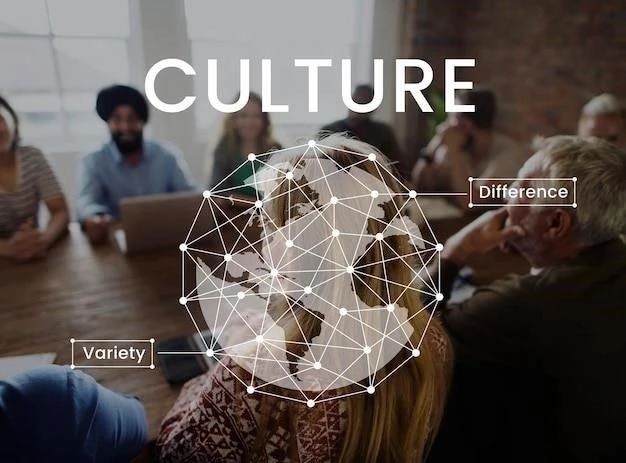Historical Overview of Technological Transformations in America
The narrative of American society is inextricably intertwined with technological advancement, revealing a consistent pattern of innovation driving societal shifts. From the early mechanization of agriculture to the rise of industrial manufacturing, each era has witnessed profound transformations in how Americans live, work, and interact.

The Rise of the Digital Age and its Societal Implications
The latter half of the 20th century ushered in the Digital Age, a period marked by the rapid proliferation of computers, the internet, and mobile devices. This technological revolution has fundamentally reshaped American society, impacting communication, information access, and social interactions. The digitalization of information created unprecedented opportunities for connectivity and knowledge sharing, fostering a globally interconnected world. However, this era also presents unique challenges. The very technologies that connect us also have the potential to exacerbate existing inequalities, fuel misinformation, and challenge traditional notions of privacy and security. Navigating the societal implications of the Digital Age, therefore, requires careful consideration of both its transformative potential and inherent complexities.

Technology’s Influence on the American Workforce and Economy
Technological advancements have consistently reshaped the American economic landscape, driving both job creation and displacement. Automation, driven by software and robotics, has revolutionized industries from manufacturing to services, increasing productivity while simultaneously raising concerns about job security for certain sectors of the workforce. This dynamic necessitates a focus on retraining and upskilling programs to equip individuals with the skills needed in a technology-driven job market. Furthermore, the rise of the digital economy, characterized by e-commerce and online platforms, has created new opportunities for entrepreneurship and innovation, while also presenting challenges related to regulation, taxation, and the rights of gig workers. Adapting to these evolving dynamics is crucial for ensuring a robust and inclusive economy in the 21st century.
The Digital Divide and Issues of Access and Inequality
While technological advancements hold immense potential for progress, the benefits are not always distributed equitably, leading to a digital divide that exacerbates existing social and economic disparities. Access to affordable high-speed internet, digital literacy, and technological devices are essential for full participation in modern American society. Yet, disparities persist along socioeconomic lines, geographic locations, and racial demographics, creating barriers to education, employment, healthcare, and civic engagement. Bridging the digital divide requires a multifaceted approach, encompassing infrastructure investments, affordability initiatives, digital literacy programs, and targeted interventions to reach marginalized communities. Ensuring equitable access to technology is not only a matter of social justice but is also crucial for fostering a truly inclusive and prosperous society.

Technology’s Role in Shaping American Culture and Communication
Technology has profoundly altered the fabric of American culture and communication, transforming how we consume information, interact with one another, and express ourselves creatively. The rise of digital media has led to a fragmented media landscape, where individuals can curate personalized news feeds and entertainment options, challenging traditional gatekeepers of information and shaping cultural trends. Social media platforms have become ubiquitous spaces for social interaction, fostering online communities while also raising concerns about the decline of face-to-face interactions and the potential for social isolation. Moreover, digital technologies have democratized creative expression, providing tools for content creation and distribution that were once accessible only to a select few. From the rise of citizen journalism to the global reach of streaming platforms, technology continues to reshape the cultural landscape and redefine the ways in which Americans connect and communicate.

The Impact of Social Media on American Society
Social media has permeated nearly every facet of American life, transforming social interactions, information dissemination, and political discourse. These platforms have created virtual public squares where individuals can connect with like-minded individuals, engage in public debate, and mobilize around shared interests. However, this unprecedented connectivity also presents challenges. The spread of misinformation and disinformation on social media has emerged as a significant concern, with the potential to manipulate public opinion, erode trust in institutions, and exacerbate social divisions. Furthermore, concerns about online privacy, data security, and the addictive nature of social media platforms require ongoing societal dialogue and potential regulatory measures to mitigate potential harms. Understanding the multifaceted impact of social media is crucial for navigating the evolving digital landscape and fostering a healthy public sphere.

Ethical Considerations and the Future of Technology in America
As technology continues to advance at an unprecedented pace, it is essential to engage in thoughtful and critical discussions about the ethical implications of these advancements. Artificial intelligence, genetic engineering, and data surveillance technologies raise complex questions about privacy, autonomy, bias, and the potential for unintended consequences. Developing ethical frameworks for the development and deployment of these technologies is crucial for ensuring that they are aligned with societal values and contribute to the well-being of all Americans. Moreover, fostering digital literacy and critical thinking skills among citizens is paramount to navigating the ethical complexities of the digital age and shaping a future where technology serves humanity in a responsible and beneficial manner.

Emerging Technologies and their Potential Impact on American Society
The technological landscape continues to evolve at an accelerating pace, with emerging technologies poised to reshape American society in profound ways. Artificial intelligence, with its capacity for automation and data analysis, holds the potential to revolutionize industries, enhance productivity, and transform healthcare, transportation, and education. However, it also raises ethical concerns about job displacement, algorithmic bias, and the potential for misuse. Similarly, advancements in biotechnology, nanotechnology, and renewable energy offer promising solutions to pressing global challenges but require careful consideration of their long-term societal implications. Anticipating and addressing the potential impacts of these emerging technologies is crucial for harnessing their benefits while mitigating potential risks.

The Importance of Responsible Technology Development and Use in America
As technology becomes increasingly intertwined with every facet of American life, the imperative for responsible development and use has never been greater. This requires a multifaceted approach, encompassing ethical considerations, regulatory frameworks, and individual responsibility. Technologists, policymakers, and citizens must work collaboratively to ensure that technological advancements align with democratic values, promote social good, and mitigate potential harms. This includes prioritizing data privacy, cybersecurity, and algorithmic fairness, while also fostering digital literacy and critical thinking skills among users. By embracing a thoughtful and proactive approach to technology governance, America can harness the transformative potential of innovation while safeguarding against its potential pitfalls, paving the way for a more equitable and prosperous future.










